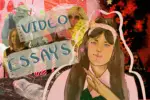November is National Novel Writing Month, and creative writers are well on their way into their novel-writing processes at this point. As they ferociously type on their keyboards and scribble words onto pieces of paper, distractions tempt them to stop. It can be enticing to slack off and shift into some tacky, cliched story plots, but this will tremendously hurt your novel. It can be difficult to ignore these temptations, keep track of your progress as a writer and avoid the dreaded writer’s block all at the same time. Thankfully, there’s a way to solve all of these problems easily with NaNoWriMo!
The idea began in 1999 when a freelance writer named Chris Baty started a project that challenged writers to finish a novel in 30 days. Each year, the number of ambitious participants grew exponentially. In 2006, Baty’s online nonprofit organization, NaNoWriMo, was created to network the writing community and their novel-writing journeys. Today, over 798,000 active novelists are participating in the challenge.
The program challenges writers to complete a 50,000-word novel from Nov. 1 to Nov. 30. That means they must average at least 1,667 words per day in order to reach their goal. The deadline is used as an incentive to continue writing, even if it’s not a writer’s best work. NaNoWriMo keeps writers accountable by tracking word count, much like the way a Fitbit tracks steps.
It’s officially November in every time zone in the world, and we’re ready for a month-long novel-writing fiesta! Have you started writing yet? Tell us about your novel! Share your first line!
— NaNoWriMo (@NaNoWriMo) November 1, 2021
Because time is of the essence, writers may find it enticing to lean into cliched story plots and tropes. Cliches are for lazy writers and make for unoriginal, diluted stories. We’ve already seen characters fall into a coma and wake up after receiving their true love’s kiss. Sure, they were once brilliant, original ideas, but now they’re just cheesy and boring. It’s time to create something nobody has seen before.
Here are five cliched story plots that must be eradicated from novel writing and tips on how to make your stories more interesting.
1. The Love Triangle
The love triangle is one of the biggest cliches known to the literary world. It is often the staple of romance and young adult genres. It’s the same scenario each time: The surly, confident bad boy and the good, sentimental guy compete for the affection of the “quirky” girl who just can’t seem to choose. This situation surely builds tension in the story, but it’s been done so many times that writers are risking major eye rolls and boredom from their readers.
The most prominent love triangle stories to exist in modern book and movie series include works like “Twilight” and “The Hunger Games,” but these cliched story plots can be found as far back as the 1930s with “Gone with the Wind.”
If the love triangle is your jam, at least make it believable. To make it work, your protagonist needs to have deep emotional connections to both love interests. Rather than making the protagonist choose their partner based on chemistry, turn the cliche on its head by making the protagonist regretfully choose the wrong person and deal with those consequences. Perhaps they choose both.
2. The Chosen One
The fate of the entire world rests in the hands of an unsuspecting, ordinary young adult. Sound familiar? It probably does if you’ve read book series like “Harry Potter,” “The Lord of the Rings” or “Divergent.” It’s quite easy to catch this cliche simply by reading a summary on the back cover. These series were obviously successful and intriguing upon their respective releases, but readers are getting tired of seeing this cliche in every book they pick up.
Don’t fret if you are already well on your way into the chosen one cliche. There are several ways that you can turn these cliched story plots into something original. Maybe the prophecy was fake and the chosen one isn’t the true hero? What if the real chosen one was the sidekick all along? Or perhaps the hero turns evil or decides to abandon the prophecy all together?
3. The Car Accident
The car accident story plot might be one of the most frustrating and inaccurate cliches to read in novels. Readers typically find them in fanfictions or romance novels. Picture this: A girl breaks up with her boyfriend after a long argument. The girl gets in her car and races back home only to collide head-on with another car. Her “life flashes before her eyes,” and she’s taken to the hospital. She loses her memory. Tragic. Don’t worry, she’ll be out of the hospital and back with her boyfriend by the end of the story.
This storyline runs dangerously close to the novel “If I Stay” and the movie “The Vow.” While cliched story plots like these sometimes intrigue readers, car accident scenes become a sort of deus ex machina dropped in the storyline when the author can’t think of anything better. If you choose to write about a car accident, be aware of the cliche. Make sure to do your research to portray a realistic picture. Interview victims of automobile accidents and the struggles they face daily. Try not to cue your readers into expecting an accident. Maybe the victim doesn’t survive and the love interest must move on, promoting safe driving awareness.
4. True Love’s Kiss
The true love’s kiss cliche sometimes coincides with the car accident cliche. The victim falls into a coma or a curse and can only be awoken by a kiss from their true love. Disney princesses such as Snow White, Aurora, Belle, Tiana and Ariel fall victim to these cliched story plots. For starters, it’s creepy and inappropriate. Prince Charming is unable to resist the unconscious princess? That doesn’t sound romantic to me — it sounds like somnophilia.
While the true love idea can appear charming, it’s rather problematic because love is defined in many ways. To add an unexpected twist to this cliche, why not use the opportunity to represent queer relationships? Much like the movies “Shrek” or “Frozen,” it might be interesting to make the “true love” someone the character was never expecting. You could even turn true love into platonic love, showing how fierce friendships can be more powerful than romantic relationships.
5. Groundhog Day
The 1993 film “Groundhog Day” features a sardonic weatherman, Phil Connors, who experiences the ultimate case of déjà vu. Connors is trapped in a time loop and must relive Feb. 2 every day until he learns to live in the present and count his blessings. This movie created a frenzy of time loop stories that are starting to go stale.
To add an unexpected twist to this cliche, it might be entertaining to make the protagonist think they’re in a time loop when, in reality, the world is just going about their daily routines. You might try to write the opposite of a Groundhog Day, where nothing happens the way the protagonist expects it to. Maybe the character is tired of their chaotic life and instead enjoys the time loop. Perhaps they conform with Groundhog Day rather than trying to escape it.
Cliches were not always trite and cheesy. They were once exciting, fresh ideas that inspired other writers to spin their own tales. Just like renowned published authors, your NaNoWriMo creation can become something unique and timeless. All you have to do is embrace originality and steer clear of the major cliched story plots.
















